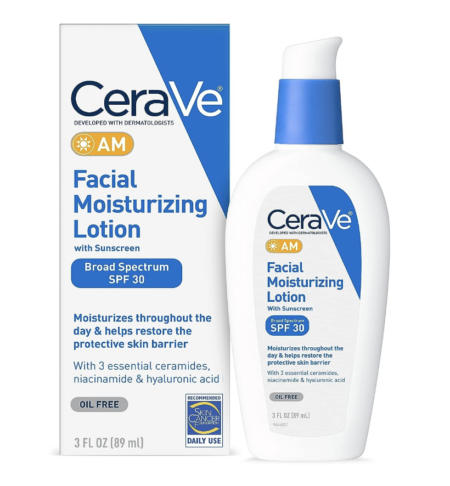Mandy Moore on battling eczema: ‘I had to find some semblance of relief’

Even via Zoom, it’s easy to see that Mandy Moore is absolutely gorgeous—and just as warm as you’d expect her to be. While her hair and skin were positively luminous during our brief interview, she was joined by (the equally stunning) dermatologist Dr. Sonia Batra to discuss living with atopic dermatitis—more commonly known as eczema as part of their campaign for Incyte, “Moments of Clarity.“
Moore says that finally being diagnosed with eczema was “a relief,” mostly because she’d been experiencing symptoms for a long time and all the products she tried up until her diagnosis were unsuccessful.
“When I was diagnosed with atopic dermatitis, it really was a relief,” Moore says. “It was just a relief to know what it was. And therefore I knew I could move forward with that knowledge, combat the symptoms and find some semblance of relief.”
What is eczema?
Clinically speaking, eczema is a chronic skin condition characterized by itchy, inflamed, and red patches of skin. It can occur in both children and adults, but it is more common in children and women. While the exact cause of eczema is not fully understood, cases can range from mild to severe and can be persistent. Dermatologists believe both genetic and environmental factors are to blame.
“It affects both genders, all races, and different ages,” Dr. Batra explains. “And each case is unique. Talking with a dermatologist to find out what specific treatment regimen works for you is the best way to get the symptoms under control.”
Related: How to treat your child’s eczema
In the U.S., 31.6 million people have at least one form of eczema. This skin condition affects all races, ethnicities, genders, and ages. But eczema can be slightly less or more common in specific groups.
Eczema in kids
Children are more likely to have the condition, with 9.6 million kids under the age of 18 in the U.S. currently having eczema. The number of children with eczema continues to grow, too. The percentage of those affected has gone up from 8% to about 12% since 1997.
“My older guy, Gus, has mild eczema,” Moore says. “He’s had it since he was a baby—on his face and now in the crux of his elbows and knees.”
She says because Gus is only two-and-a-half, she mostly just ensures he’s “locked in” with moisturizers every day while trying to narrow down possible triggers.
“During the summer months when we’re swimming a lot, I lather him up in lotion as soon as he’s dry,” she says. “During the winter, we do oatmeal baths.”
Yes, women are more prone to eczema than men
While research suggests that eczema affects both men and women equally, there may be some differences in the prevalence and severity of eczema between the sexes. For example, hormonal changes, such as those that occur during pregnancy and menopause, can sometimes trigger or worsen eczema in women.
Women may also be more susceptible to certain types of eczema, such as hand eczema or eczema that appears on the nipples or areolas during breastfeeding.
“There is a preponderance of women with eczema, and the medical community thinks it’s because women use more irritants on the skin—like makeup and fragrances,” Dr. Batra explains. “Women also tend to have a lot more immersion in water during their daily activities, like with cooking and hand-washing, or simply being a hair stylist or a healthcare provider.”
What type of products can help treat eczema symptoms?
“When I talk to patients, I always tell them it doesn’t have to be this one thing,” Dr. Batra says. “It doesn’t have to be something super pricey because drugstore products really do work well. Just look for things without added colors and fragrances that contain ceramides, fatty acids, and hyaluronic acid.”
And in case you’re wondering, yes even Mandy Moore admits having two boys under two years old was A LOT at first.
“I feel like just recently we’ve turned a corner where my little guy is almost one, and we’re almost out of Babyland,” she says. “Things are feeling incrementally easier. My husband and I looked at each other the other day and we were like, ‘Are we both feeling the same way? Is this getting easier?’ Which inevitably means there’s a sleep regression or something right around the corner.”







